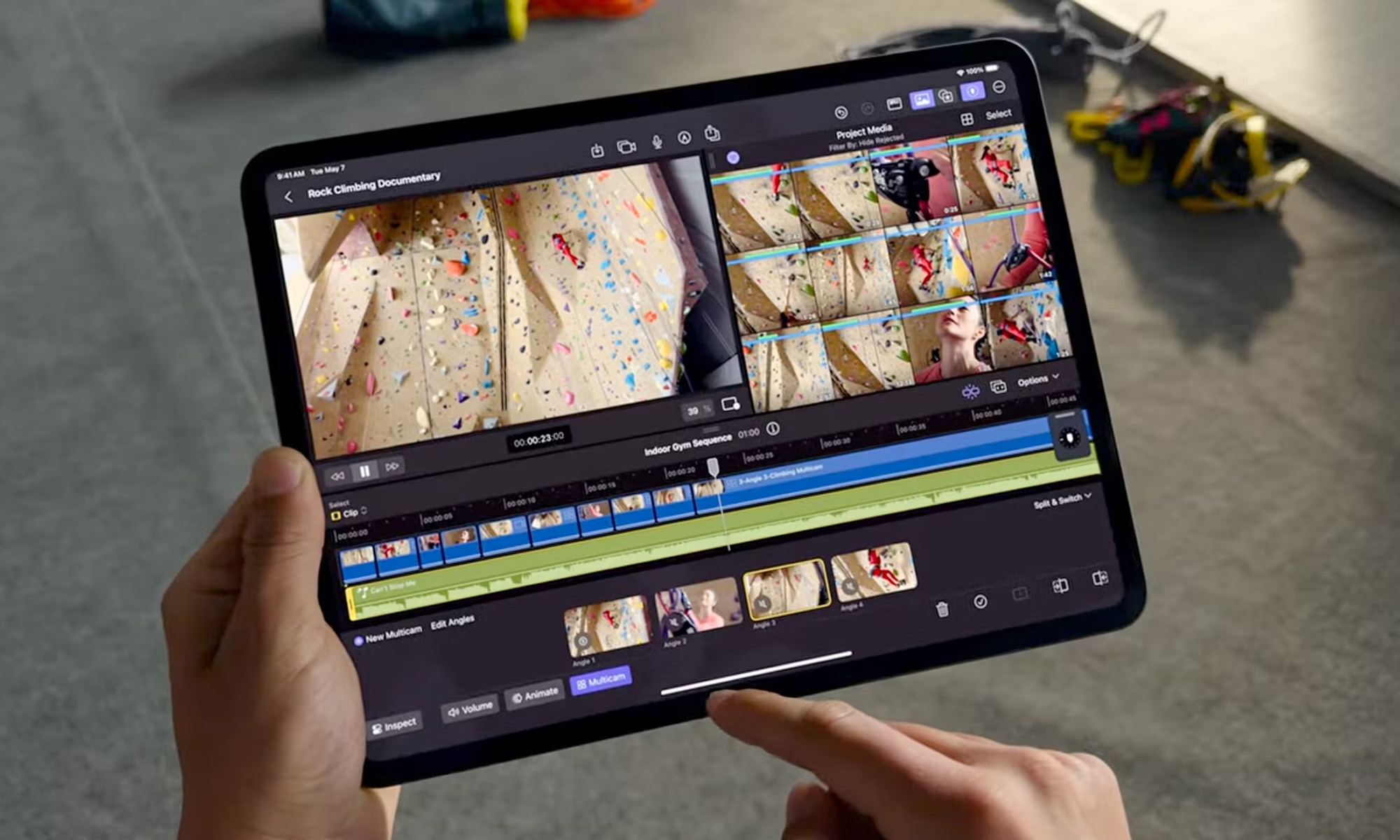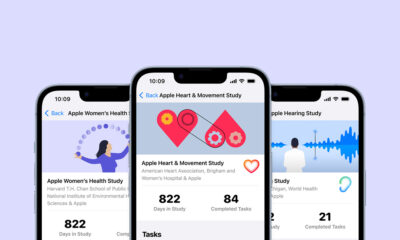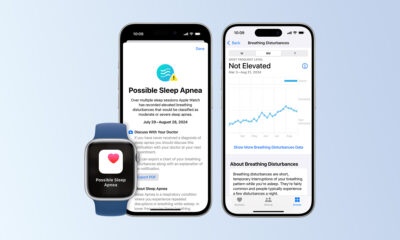News
Apple Announces New iPad Pro With M4 Chip And Updated iPad Air
“This is the biggest day for iPad since its introduction,” said CEO Tim Cook in a video posted to Apple’s website.

Apple’s latest updates to its popular iPad Air and Pro models were announced on Tuesday, May 7. These are the first changes since 2022, the longest stretch between new models since the iconic device was revealed in 2011.
Both the 11-inch and 12.9-inch versions of the iPad Pro have received a huge design overhaul. The most noteworthy change is the move to OLED screens, with the 12.9-inch version receiving a small bump in size to 13 inches. Apple claims the new tablets are brighter and more vibrant than outgoing models, thanks to a technology it calls “tandem OLED” or “Ultra Retina XDR”.
The 13-inch model now measures an astonishing 5.1 mm in thickness, which Apple says is its slimmest device ever. (The 11-inch version is 5.3 mm thick.) For those who prefer the look of a matte display, a nano-texture coating will also be available for the first time on the Pro models.
Finally, the new iPad Pros have received a processor bump to the latest M4 chip, which Apple says is an “outrageously powerful chip for AI”, offering an example of its ability to quickly and efficiently isolate subjects from backgrounds in videos.
The iPad Pro 11-inch starts at $999, and the larger 13-inch version starts at $1,299 with 256GB of storage.
Updated iPad Air In Two Sizes
The sixth-generation iPad Air didn’t receive as many upgrades as the iPad Pro but significantly does now come in two sizes. As with the Pro models, buyers now have the choice between an 11-inch and 13-inch screen, meaning they don’t need to invest in a Pro version just to get a 30% bump in display size.
Apple kept the same design for the iPad Air that it first revealed in 2020, complete with a USB-C port and Touch ID in the top button. The only difference is the front camera placement, which has been moved to the center of the iPad when in landscape orientation.
The 11-inch iPad Air is priced at $599 for the entry-level model, while the 13-inch version starts at $799.
Also Read: How To Clean Your Apple Watch Like A Pro
New Magic Keyboard Case
Apple also announced an updated (thinner, lighter) Magic Keyboard for its Pro iPads. The refreshed version now includes a function row (with controls for screen brightness). An aluminum palm rest and large trackpad with haptic feedback also help the premium case feel more like a Macbook.
The new Magic Keyboard is available for both the 11-inch and 13-inch iPad Pros and will be priced at $299 or $349, respectively.
Apple Pencil Pro
Apple also announced a new Apple Pencil, named Pro, at its event. The new model looks exactly the same but adds a “squeeze” function that opens a new tool palette. Meanwhile, a built-in gyroscope sensor lets you alter the orientation of the tools you’re using as you twist the device, offering finer control. Finally, the new pencil gets support for Apple’s Find My network, which should keep minds at rest at the prospect of losing the $129 device.
Finally, to round off Apple’s series of announcements, the entry-level iPad was reduced to $349 — a $100 price cut.
News
Samsung Smart Glasses Teased For January, Software Reveal Imminent
According to Korean sources, the new wearable will launch alongside the Galaxy S25, with the accompanying software platform unveiled this December.

Samsung appears poised to introduce its highly anticipated smart glasses in January 2025, alongside the launch of the Galaxy S25. According to sources in Korea, the company will first reveal the accompanying software platform later this month.
As per a report from Yonhap News, Samsung’s unveiling strategy for the smart glasses echoes its approach with the Galaxy Ring earlier this year. The January showcase won’t constitute a full product launch but will likely feature teaser visuals at the Galaxy S25 event. A more detailed rollout could follow in subsequent months.
Just in: Samsung is set to unveil a prototype of its augmented reality (AR) glasses, currently in development, during the Galaxy S25 Unpacked event early next year, likely in the form of videos or images.
Additionally, prior to revealing the prototype, Samsung plans to introduce…
— Jukanlosreve (@Jukanlosreve) December 3, 2024
The Galaxy Ring, for example, debuted in January via a short presentation during Samsung’s Unpacked event. The full product unveiling came later at MWC in February, and the final release followed in July. Samsung seems to be adopting a similar phased approach with its smart glasses, which are expected to hit the market in the third quarter of 2025.
A Collaborative Software Effort
Samsung’s partnership with Google has played a key role in developing the smart glasses’ software. This collaboration was first announced in February 2023, with the device set to run on an Android-based platform. In July, the companies reiterated their plans to deliver an extended reality (XR) platform by the end of the year. The software specifics for the XR device are expected to be unveiled before the end of December.
Reports suggest that the smart glasses will resemble Ray-Ban Meta smart glasses in functionality. They won’t include a display but will weigh approximately 50 grams, emphasizing a lightweight, user-friendly design.
Feature Set And Compatibility
The glasses are rumored to integrate Google’s Gemini technology, alongside features like gesture recognition and potential payment capabilities. Samsung aims to create a seamless user experience by integrating the glasses with its broader Galaxy ecosystem, starting with the Galaxy S25, slated for release on January 22.


























